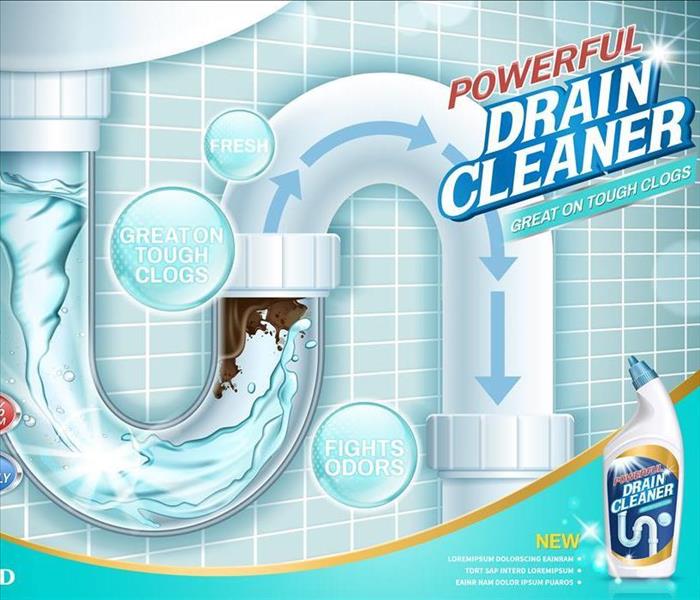Important Concerns About Chemical Drain Cleaners
3/22/2022 (Permalink)
 If you're having trouble with a clogged pipe, don't try to fix the problem yourself. calling SERVPRO is the best solution.
If you're having trouble with a clogged pipe, don't try to fix the problem yourself. calling SERVPRO is the best solution.
Concerns Regarding Chemical Drain Cleaners
In any office, a clogged drain has the potential to cause havoc. When a blockage is present, contaminated backflow can spill everywhere. Drywall may become damaged and mold may even surface.
Hiring a commercial water restoration service may be necessary to conduct a thorough sewage cleaning. Before that happens, pay attention to these words of caution regarding chemical drain cleaners.
Conditions for Using Chemical Drain Cleaners
Because they are so strong, chemical drain cleaners are extremely effective at ridding clogs. For the same reason, though, they also have the ability to damage pipes. The risk increases when they are used on:
- Older or weakened pipes
- Completely blocked drains
- Plastic pipes
Never attempt to fix a clogged drain with a chemical cleaner unless you are certain these conditions are not present.
How Chemical Drain Cleaners Work
All chemical drain cleaners get rid of clogs by producing heat. Whether you prefer ones that are caustic, oxidizing or acidic in nature, they operate in exactly the same way. Chemical cleaners cause electrons to transfer between organic substances such as food and grease. The heat generated by these exchanges causes clogs to break down so they can be flushed out.
When To Use Chemical Drain Cleaners
Because they can be harmful to the skin as well as dangerous to pets and children, a chemical drain cleaner should only be used when all other options have failed. First, attempt to rid yourself of the problem with a plunger or auger. If that doesn’t work, try a biological solution.
These organic dissolvents use enzymes to essentially eat clogs. Although safer, they can take up to 24 hours to work on your sink in Delray Beach, FL.
When there is a clogged drain in your office, the problem needs to be addressed immediately. Only apply a chemical cleaner if nothing else works and doing so will not harm your pipes.



 24/7 Emergency Service
24/7 Emergency Service